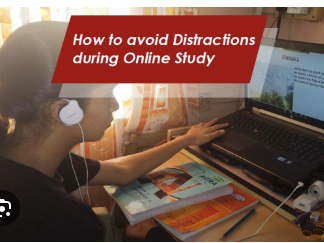Curiosity is a powerful tool in a student’s learning journey.
It pushes us to explore new ideas, ask questions, and develop a deeper understanding of the world around us.
But how can you, as a student, nurture this curiosity? Below are some practical tips to help you become more curious, engaged, and motivated in your studies.1. Ask Questions Regularly
Curiosity starts with asking questions. In class, don’t hesitate to ask your teachers about things that confuse you or spark your interest. This not only helps you understand the subject matter better but also shows your teachers that you’re engaged. Outside of class, try asking questions related to topics you’re curious about. Whether it’s a hobby, an area of study, or something you heard in a conversation, asking questions leads to discoveries.
2. Read Beyond the Textbook
Textbooks are great for understanding the basics, but they don’t always cover the full scope of a topic. Expand your curiosity by exploring other sources—online articles, videos, podcasts, or even fiction. These can offer different perspectives or dive deeper into subjects that interest you. You might stumble upon something that excites you even more!
3. Connect Ideas and Disciplines
Sometimes, curiosity grows by making connections between what you’re learning and other areas of your life. For example, if you’re studying science, how does it relate to art or history? Or if you’re learning math, how could you use it in everyday situations like budgeting or planning? By making these connections, you not only enrich your knowledge but also spark new avenues of curiosity that you might never have considered.
4. Engage in Discussions and Group Learning
Discussing ideas with friends or classmates is a great way to explore different perspectives and deepen your curiosity. Group learning can bring new insights and help you discover aspects of a topic you hadn’t thought of before. It also allows you to share your curiosity and learn from others who may have similar or completely different interests.
5. Be Open to Exploring the Unknown
Curiosity often thrives when you’re open to exploring the unknown. This means stepping outside your comfort zone and trying things that you might not be familiar with. Take an interest in subjects that seem challenging or unusual at first glance. You might find that your curiosity leads to unexpected passions and talents.
6. Use Technology to Your Advantage
In the digital age, there’s a wealth of knowledge at your fingertips. Use apps, websites, and online courses to further your curiosity. Platforms like YouTube, Khan Academy, and Coursera offer endless learning opportunities on nearly any topic. By diving into these resources, you can explore new interests and expand your academic horizons.
7. Stay Positive and Open-Minded
Curiosity is closely tied to a positive attitude and an open mind. Even if you’re struggling with a difficult subject or feeling stuck, keep a mindset that sees challenges as opportunities for growth. Curiosity often flourishes when we stay motivated and excited about what we’re learning, rather than discouraged by setbacks.
8. Reflect on What You’ve Learned
Taking time to reflect on what you’ve learned helps solidify your curiosity and keep it alive. After a lesson or study session, think about what sparked your interest and what you’d like to explore next. This reflection can keep the curiosity cycle going, encouraging you to ask more questions and seek out new knowledge.






